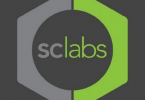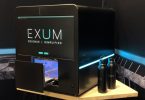September, National Suicide Prevention Awareness Month, may be over, but suicides take place year-round. And among war veterans, they take place every day – 20 times a day, to be precise, according to a report published by the United States Department of Veterans Affairs (VA) in 2016.

With that in mind, as well as a veteran’s own, inimitable experience with war and how deafening and lasting its echoes are, three veterans aim to take fellow soldiers to the place of respite they found in cannabis. They’re doing this so they can be brothers in arms and brothers in peace as well. And the key word here is respite, as opposed to the alcoholic and opioid haze that more than 20% of veterans with post-traumatic stress disorder (PTSD) get sucked into in their efforts to numb physical and mental ailments.

These three veterans are Andy Miers, Bryan Buckley, and Matt Curran, and they now carry the universal values they adopted in the military into their new venture, Helmand Valley Growers Company, or HVGC. One hundred percent of the company’s profits go to support medical cannabis research.

“In the military we were trained to expect the unexpected and accomplish the mission through hard work, discipline, performance under pressure, and a willingness to sacrifice,”. “100% of the profits from sales go back to fund the research and to date, the co-founders have not taken a salary as a commitment to their dedication of seeing this succeed.”
Certainly, those principles are highly applicable to a field as infant, unpredictable, complex, demanding, and responsible as cannabis and its medical niche in particular, which is HVGC’s primary focus especially as it pertains to veterans.
“The primary goal of HVGC is to spearhead medical cannabis research conducted by partnered doctors and submit the data collected to the Veterans Affairs Committee and Congress with a determined focus to change the face of healthcare for our veterans,” they explain.
And the face of healthcare for veterans does need some changing, alright — perhaps even plastic surgery. HVGC says of the deployed military personnel prescribed opioids, it is guaranteed that addictions will occur.
Meanwhile, the stigma surrounding cannabis couldn’t be stickier in the traditional military world. An unequivocal testament to the Pentagon’s attitude toward cannabis is the fact that it is moving to make CBD a criminal offense for troops, despite the non-intoxicating cannabinoid being legal under federal law and all the positive momentum it has garnered in mainstream culture.
HVGC believes that the key to changing these outdated, rigid views is education, which doesn’t end with legalization, but contrarily, is spurred by it.
“We’ve found that the negative stigma and perceptions surrounding cannabis are often due to a lack of education and we focus on education as one of our pillars. We believe that even after cannabis is recognized as a legal substance at a federal level, we will still have a responsibility to educate leaders and decision makers as to what cannabis and how it can provide relief for a multitude of symptoms.”
To that end, HVGC has teamed up with NiaMedic, a medical data company, and the Battle Brothers Foundation, which helps veterans through mentorship programs, medical cannabis treatment methodologies, and initiatives that increase their chances of securing positions at the forefront of financial growth sectors.
NiaMedic aims to integrate conventional medicine with proprietary medical cannabis treatment of PTSD instead of approaching cannabis as some panacea. The participants in their research program come from the Battle Brothers Foundation’s pool of veterans, while the financing comes from the revenue which HVGC generates through its recreational brand, the sole purpose of which is to provide the financial support needed to make the program 100% free for the selected veterans.
“We hope that science can speak for itself here. This is the first study of its kind and is currently being reviewed by an Institutional Review Board (IRB) for approval. U.S. Doctors, an approved medical research protocol, and veterans selected using a stringent set of criteria should legitimize the research and the results.”
Additionally, HVGC offers six cherry-picked cultivars for the relief-based effects they provide: Purple Trainwreck, Afghanimal, Sour Diesel, Purple Kush, Headband, and Sour Lemon Haze. Moreover, the company added a nice, little twist to these staples that should make for a gentler introduction into the world of cannabis.
“We’ve also included a THC:CBD 1:1 by request due to the hesitancy of some veterans to jump right into the THC [tetrahydrocannabinol] arena.”
But this is just the beginning. In the near future, HVGC plans on expanding their product line significantly.
“Live Resin and small-batch private farm pre-rolls will follow closely behind with an edible in the works for fall of 2020. We are also working on our hemp-based CBD line, complete with gel caps, topical cream, lip balm, and tinctures, and hope to have that launched nationally very soon.”
Of course, the three veterans know better than anyone that no cannabis treatment alone can be powerful enough to heal emotional scars as deep as the ones war carves out. On the contrary, they view cannabis as a sustainable, long-term support that veterans can lean on without fear that it may lead them astray down a slippery slope as opioids tend to do.
“Cannabis has the ability to improve daily life by, with, and through – providing restful sleep, a general feeling of wellness, improving a positive attitude, and tempering the storm that we all feel at times when the stressors of life begin to stack up. Cannabis provides an opportunity to calm the storm. When the daily stressors are manageable, the sense of being overwhelmed diminishes, and we can move forward with confidence.”
Once the sunshine starts breaking through the clouds, veterans can carry the positive momentum on, with or without cannabis.
“We believe that cannabis should be seen as a long-term holistic treatment to be used as needed.”
Opioids hardly, if ever, leave the same leeway.








